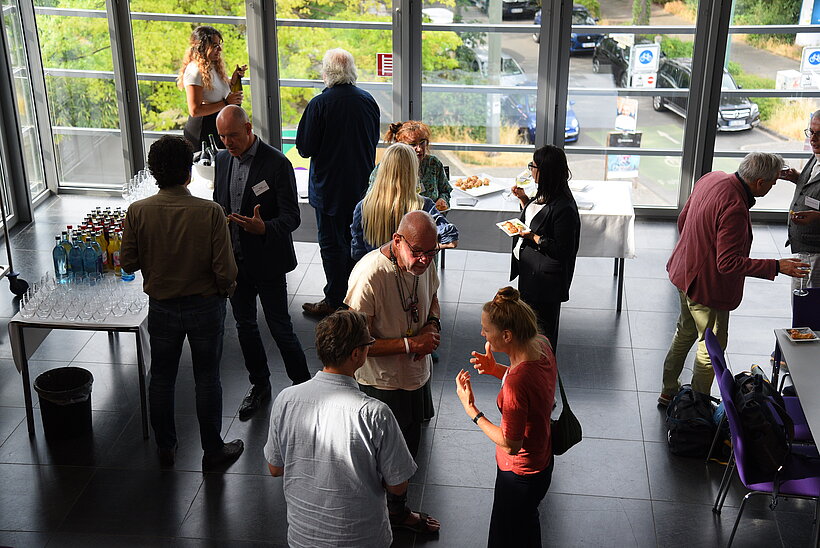Methods
We employ a suite of methods designed to address the multifaceted challenges of today’s dynamic landscape.
Some of these methods fall within our core competencies and are applied independently by our organization. To enhance our approach, we also incorporate other crucial methods into our methodology that require the specialized expertise of partners.
This approach is critical because it necessitates the integration of various methods. The collaborative pespective ensures that our initiatives are grounded in the highest standards of knowledge and practice. We aim to contribute to this integration by offering a comprehensive perspective and conceptual framework.
Methods We Apply Independently
These methods are executed solely by our organization, leveraging our internal expertise and resources to drive innovation and achieve our objectives.
Methods Requiring Partner Collaboration (Partnered Methodology)
For these methods, we rely on the specialized expertise of our partners to execute tasks effectively. This collaboration enhances our capabilities and ensures the highest standards of performance and impact.

Concept Development
At the heart of our approach lies a commitment to understanding the inner workings of institutions and discourses. We navigate the landscape of ideas and structures with a blend of intuitive agency and pattern recognition. We dissect concepts with rigour and as irrespective of cultural attachments, unveiling their functional strengths, limitations, and practical implications for transformation.
Our conceptual endeavours are akin to recomposing functional patterns (pattern language), unlocking their potential for adaptation and evolution within their original context. This process empowers us to craft innovative solutions that transcend conventional paradigms, fueling creativity towards generating transformative impact.
Applied Research
Central to our applied research ethos is a steadfast commitment to swift learning, astute discernment, and agile decision-making. We meticulously assess the potential and constraints of diverse approaches, ensuring our focus on their meaningful impact on social-ecological transformation.
Our interdisciplinary approach spans domains like community development, communications, software design, method and tool development, institutional buidling, and foundational concept exploration in money systems. This breadth of engagement equips us with a nuanced understanding of the viability of innovative ideas and the systemic adaptations required for their successful implementation.

Event Organisation
Conferences, symposia and workshops serve as important instruments for achieving our goal of collaborative research and development. Our events facilitate the exchange of ideas between experts and promote the rapid conceptualisation, critical reflection and further development of innovative approaches. They enable us to expand our network and create the basis for joint project development.
Partnered Methodology
Sustainable Business Model Design
Leaving the market solely to private companies with sustainable business models is insufficient to create any form of transformative impact. Therefore, we advocate for the development of community-based models capable of mitigating negative externalities while generating benefit – or even economic profit – through their reduction. Achieving a social-ecological transformation necessitates substantial involvement of Small and Medium-sized Enterprises (SMEs), complemented by strategic community engagement.
Ironically, expediting transformative change demands a quasi-capitalist economic vigor, but with a crucial twist—it must outcompete unsustainable market features at local and regional levels. This requires innovative business models leveraging community ties to bridge consumption and production. Sustainable business model design must transcend mere sustainability programs or cooperatives; it requires an intricate fusion of private, municipal, cooperative, and commons principles. The goal is to foster highly dynamic local development while safeguarding against typical compromises inherent in conventional business models.
Partnered Methodology
Systemic Indicator Development
Despite their widespread adoption, sustainable development indicators often fall short in capturing the intricate web of causal relationships underpinning environmental and social phenomena. While these metrics offer a snapshot of progress, they frequently overlook the fundamental drivers of sustainability, opting instead for surface-level assessments that fail to address root causes.
A critical flaw lies in the tendency of current indicators to prioritize short-term outcomes over long-term systemic change. By focusing on symptomatic effects rather than underlying causal mechanisms, these metrics provide a misleading portrayal of progress, obscuring the true challenges facing sustainable development efforts.
To truly effect meaningful change, we must shift our focus towards developing indicators that delve deep into established causal pathways, identifying leverage points for intervention and transformation. By illuminating the root causes of environmental degradation, social inequality, and economic instability, these indicators can guide decision-makers towards targeted interventions that address the systemic drivers of unsustainability.
Moreover, an emphasis on long-established causal mechanisms ensures that sustainable development efforts are grounded in robust scientific evidence, rather than fleeting trends or short-sighted policies. By harnessing the power of data and analysis to inform strategic action, we can pave the way for a more equitable, resilient, and sustainable future for all.
Partnered Methodology
Externality Performance Accounting
Partnered Methodology
Externality Performance Accounting
Incorporating sustainability into business accounting practices is increasingly recognized as essential for responsible and effective management. Externality Performance Accounting focuses on measuring and reporting the social and environmental impacts of a company’s operations.
The latest research underscores the need for key performance indicators (KPIs) on sustainability to be an integral part of business accounting practices. This allows companies to gain a clear understanding of their negative externalities and develop strategies to reduce them while generating positive externalities.
Christian Hiss and Regionalwert AG in Germany have pioneered efforts in this area, demonstrating the practical benefits of integrating sustainability metrics into financial reporting. Their work emphasizes the importance of transparent and comprehensive accounting practices that reflect the true cost and value of business activities. By adopting such methodologies, companies can identify areas where they can minimize harm and create positive impacts, aligning their operations with broader societal and environmental goals.
The key idea is that businesses need actionable insights to effectively reduce negative externalities, such as pollution and resource depletion, and to enhance positive externalities, such as community development and ecosystem restoration. By embedding sustainability KPIs into accounting frameworks, companies are better equipped to make informed decisions that contribute to long-term sustainability and resilience, ultimately fostering a more sustainable and equitable economy.
Partnered Methodology
Economic Impact Analysis (EIA)
Economic impact analysis is as cornerstone in understanding the interplay between economic activities. It stands as a beacon in the quest for sustainable development, offering a roadmap to navigate the complexities of economic transformation.
As we navigate the intricate landscape of business and policy, understanding the ripple effects of our actions on the economy is paramount. This analysis delves beyond traditional metrics, aiming to uncover the true costs and benefits of various initiatives, with a keen eye on environmental and social ramifications.
At its core, economic impact analysis seeks to quantify the broader implications of economic activities, shedding light on both direct and indirect effects. By examining factors such as employment generation, income distribution, and resource utilization, this approach provides invaluable insights into the holistic impact of development endeavors.
Moreover, economic impact analysis serves as a catalyst for informed decision-making, empowering stakeholders to craft policies and strategies that foster sustainable growth and equitable outcomes. By integrating environmental and social considerations into economic assessments, we can pave the way for a more resilient and inclusive economy that thrives in harmony with our planet and society.
Ultimately, economic impact analysis serves as a powerful tool for fostering sustainable development and inclusive prosperity.